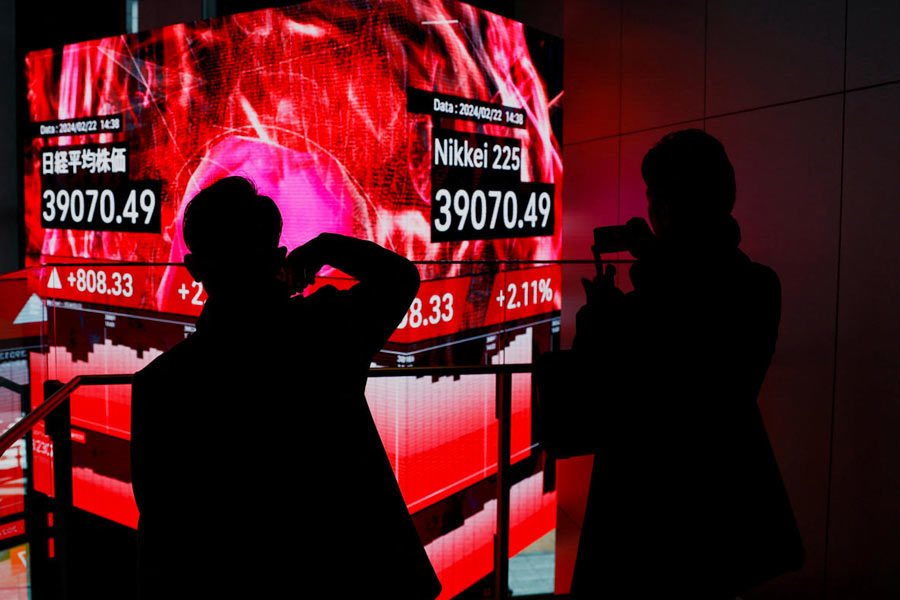Stocks in Japan rose to a record high Thursday, surpassing a level last seen 34 years ago when the country was at the peak of its economic ascendancy, before it sank into decades of low growth.
The Nikkei 225, a benchmark stock index in Japan, moved 2.1 per cent higher to 39100, breaking through its previous high of 38915.87 reached December 29, 1989. Stocks in Japan have been on a broadly steady rebound for more than a decade, but they have moved sharply higher in the past year.
What has changed to spark the stock surge?
Stocks in Japan have looked cheap because of a weak yen, which has been a boon to exporters that make their profits overseas. Important changes to the corporate sector have also given shareholders more rights, allowing them to push for changes that favour their stock holdings.
And in a contrast with other parts of the world, rising inflation in Japan recently has been seen as a sign that things are headed in the right direction, after decades of falling prices and sluggish economic growth discouraged people and companies from spending.
Japan’s stocks have also benefited from a downturn in China, where economic growth has slowed under the weight of a plunge in real estate and a host of systemic and political challenges. Chinese markets have recently traded at low points that haven’t been reached since a rout in 2015.
Investors from abroad have pumped a net $14 billion into the market in January, according to data from Japan Exchange Group.
Corporate profits are strong. Earnings at large Japanese companies are set to rise by over 40 per cent in their latest quarterly results, according to Goldman Sachs.











